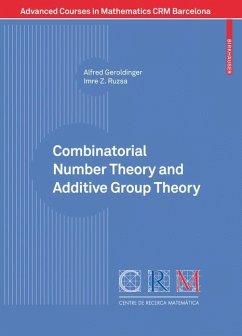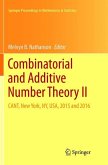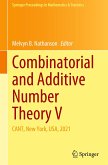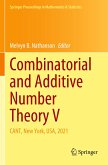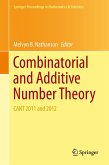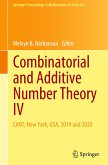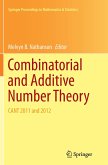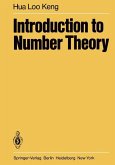Additive combinatorics is a relatively recent term coined to comprehend the developments of the more classical additive number theory, mainly focussed on problems related to the addition of integers. Some classical problems like the Waring problem on the sum of k-th powers or the Goldbach conjecture are genuine examples of the original questions addressed in the area. One of the features of contemporary additive combinatorics is the interplay of a great variety of mathematical techniques, including combinatorics, harmonic analysis, convex geometry, graph theory, probability theory, algebraic geometry or ergodic theory.
This book gathers the contributions of many of the leading researchers in the area and is divided into three parts. The two first parts correspond to the material of the main courses delivered, Additive combinatorics and non-unique factorizations, by Alfred Geroldinger, and Sumsets and structure, by Imre Z. Ruzsa. The third part collects the notes of most of the seminars which accompanied the main courses, and which cover a reasonably large part of the methods, techniques and problems of contemporary additive combinatorics.
This book gathers the contributions of many of the leading researchers in the area and is divided into three parts. The two first parts correspond to the material of the main courses delivered, Additive combinatorics and non-unique factorizations, by Alfred Geroldinger, and Sumsets and structure, by Imre Z. Ruzsa. The third part collects the notes of most of the seminars which accompanied the main courses, and which cover a reasonably large part of the methods, techniques and problems of contemporary additive combinatorics.
From the reviews:
"Combinatorial number theory revolves in some sense around Goldbach's conjecture, which serves as a prototype of the kind of problems involved. ... On the whole, the book is quite technical and aimed principally to researchers or PhD students. The prerequisites are a good acquaintance with general commutative algebra, algebraic number theory and elementary group theory." (Fabio Mainardi, The Mathematical Association of America, October, 2009)
"Combinatorial number theory revolves in some sense around Goldbach's conjecture, which serves as a prototype of the kind of problems involved. ... On the whole, the book is quite technical and aimed principally to researchers or PhD students. The prerequisites are a good acquaintance with general commutative algebra, algebraic number theory and elementary group theory." (Fabio Mainardi, The Mathematical Association of America, October, 2009)

